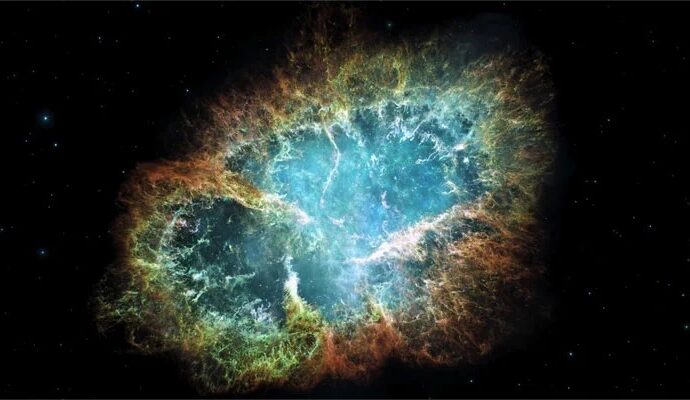SN 2023ixf is the closest supernova to Earth in more than a decade — and the perfect excuse for intelligent aliens to get our attention, new SETI research suggests.
Astronomers have their eyes on a new ultrabright explosion in space: a Type II supernova in the Pinwheel Galaxy (also known as M101). A Type II supernova is the catastrophic end to a massive star’s life, and this new one, called SN 2023ixf, is the nearest bang to Earth in more than a decade.
While many astronomers are interested in seeing the end of a star’s life, a small group of others is wondering something else: Could this flash of light also help us find messages from aliens? A team of researchers from the Search for Extraterrestrial Intelligence (SETI) Institute and the University of Washington think it might.
In a paper posted to the preprint database arXiv and submitted to the journal Research Notes of the American Astronomical Society, the astronomers propose that intelligent extraterrestrials might use the supernova as an opportunity to send a message to other civilizations entranced by the dying star’s glow. Now, the researchers are using radio telescopes to search an area near the supernova for star systems that could harbor potentially habitable planets, just in case there are advanced aliens there trying to say hello.
The idea is kind of like how you wait for a server at a restaurant to look your way so you can wave to them for your check. Earth is looking at the supernova — now, the researchers ask, is someone trying to wave us over while our attention is in that direction?
To answer that question, the team marked an area around the supernova called a “SETI ellipsoid” — an elliptical region of space where aliens living on potentially habitable planets would have a clear view of both the supernova and of Earth. In this region, the team identified 100 stars that are visible from Earth and that could potentially send us messages while we watch the supernova smolder.
Next, the team plans to listen in near those stars over the next few months with two major radio telescopes — the Allen Telescope Array in California and the Green Bank Observatory in West Virginia — in hopes of picking up some alien technosignatures.
Japanese astronomers discovered SN 2023ixf May 19, and everyone from amateur astronomers to astrophysicists has been looking at it since then. This type of supernova happens only in stars that are more than eight times the mass of the sun, and they can shine for months to years, giving any intelligent aliens out there a wide window to send a note our way. So is it likely that this search will turn up the first message from intelligent life beyond Earth? Probably not, the researchers admit in their paper — but it’s good practice for future events like these, and we’ll never know if we don’t try.





















